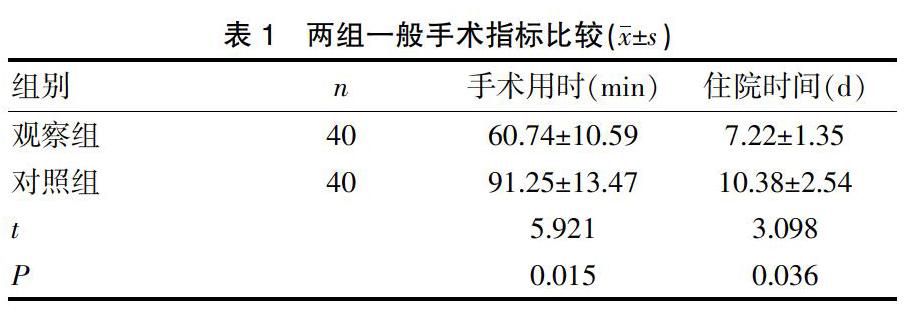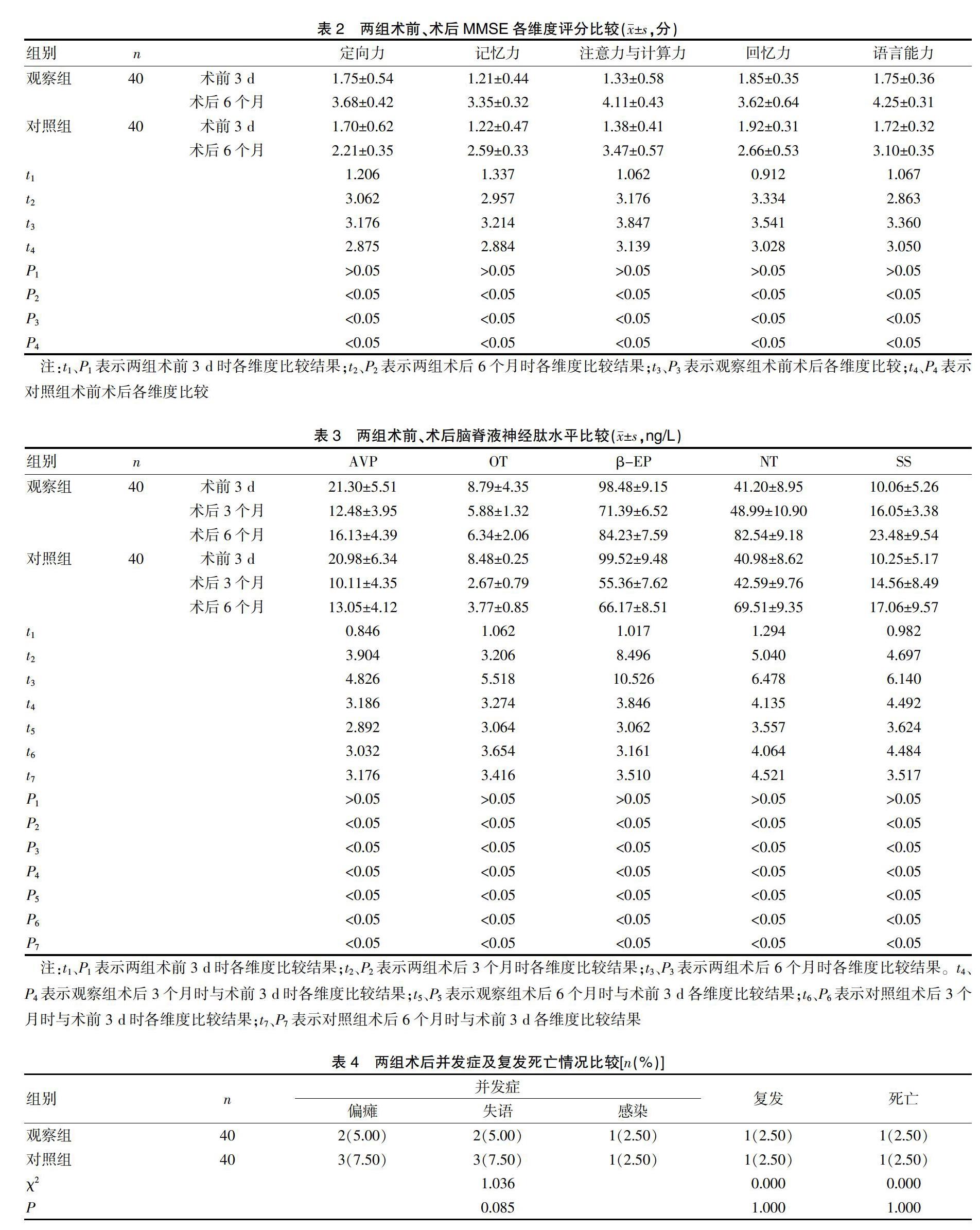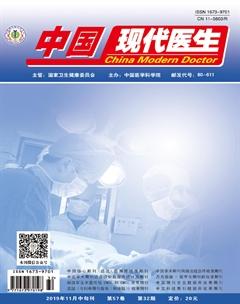显微镜下全切或次全切除术治疗脑胶质瘤的综合疗效及预后
程品文


[摘要] 目的 探討显微镜下全切或次全切除术治疗脑胶质瘤的综合疗效及预后。 方法 选取2016年6月~2017年6月于我院就诊的80例脑胶质瘤患者作为研究对象。采用随机数字表法将其分为观察组与对照组,对照组40例接受传统开颅胶质瘤切除术,观察组40例在显微镜下行全切或次全切除术,比较两组患者手术治疗的综合效果及预后结局。 结果 观察组手术用时[(60.74±10.59)min]、平均住院时间[(7.22±1.35)d]明显低于对照组手术用时[(91.25±13.47)min]、平均住院时间[(10.38±2.54)d],差异有统计学意义(P<0.05);两组术前定向力、记忆力、注意力、计算力、回忆能力、语言能力评分比较,差异无统计学意义(P>0.05);术后两组各项评分均高于术前,且观察组明显高于对照组(P<0.05)。术前两组脑脊液神经肽水平比较,无显著差异(P>0.05),术后观察组脑脊液神经肽水平与对照组比较,存在显著差异(P<0.05);两组术后并发症发生率比较,无显著差异(P>0.05);术后1年随访显示观察组复发率与死亡率均为2.5%,对照组复发率与死亡率均为2.5%,两组复发率与病死率比较,无显著差异(P>0.05)。 结论 采用显微镜下全切或次全切除术治疗脑胶质瘤疗效可靠且安全性高,能够有效降低患者认知功能的损害,促进患者脑脊液神经肽水平的恢复,有利于改善患者近远期预后,具有临床应用及推广价值。
[关键词] 显微镜下全切或次全切;脑胶质瘤;综合疗效;认知功能;预后结局
[中图分类号] R739.41 [文献标识码] B [文章编号] 1673-9701(2019)32-0037-04
Comprehensive curative effect and prognosis of microscopic total or subtotal resection for glioma
CHENG Pinwen
Department of Neurosurgery, Gucheng County People's Hospital in Hubei Province, Gucheng 441700, China
[Abstract] Objective To investigate the comprehensive curative effect and prognosis of microscopic total or subtotal resection for glioma. Methods Eighty patients with glioma treated in our hospital from June 2016 to June 2017 were selected as the subjects and divided into the observation group and the control group by the random number table method. The control group, consisting of 40 patients, were treated with traditional craniotomy for glioma resection, and the observation group, consisting of 40 patients, were treated with microscopic total or subtotal resection. The comprehensive effects and prognosis outcomes of surgical treatment were compared between the two groups. Results The surgical time [(60.74±10.59) minutes] and the average hospitalization time [(7.22±1.35) days] in the observation group were significantly lower than those [(91.25±13.47) minutes, (10.38±2.54) days] in the control group (P<0.05). The orientation, memory, attention, calculation, recall and language ability scores were not significantly different between the two groups before surgery(P>0.05), of which all improved evidently after surgery, but the scores in the observation group were all significantly higher than those in the control group after surgery (P<0.05). The two groups were not significantly different in the cerebrospinal fluid neuropeptide level before surgery(P>0.05), but the two groups were significantly different in the cerebrospinal fluid neuropeptide level after surgery(P<0.05). The two groups were not significantly different in the incidence of postoperative complication (P>0.05). The recurrence rate and the mortality rate were both 2.5% in the observation group and the recurrence rate and the mortality rate were also both 2.5% in the control group in the postoperative 1-year follow-up, with no significant differences between the two groups(P>0.05). Conclusion Microscopic total or subtotal resection for glioma is reliable and safe. It can effectively reduce the cognitive function damage and promote the recovery of cerebrospinal fluid neuropeptide levels in patients, which is conducive to improving the patients' short and long term prognosis and is of clinical application and promotion value.

